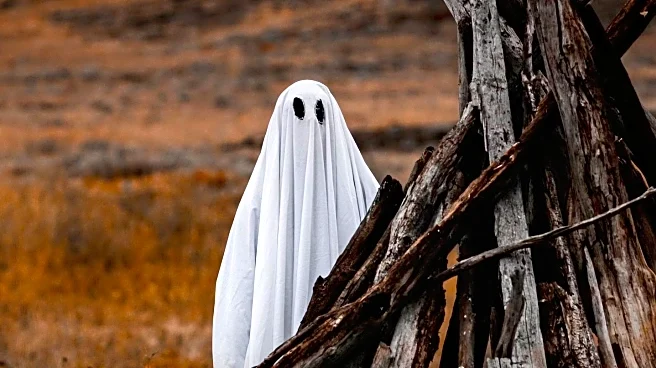What's Happening?
The Atlantic explores the cultural and historical significance of ghosts, examining how they have been perceived across different societies and eras. Ghosts are often seen as omens or lost spirits, representing
themes of regret and unresolved endings. The article delves into personal accounts of supernatural experiences, highlighting how ghost stories have been shared and interpreted throughout history. It discusses the shift in societal attitudes towards ghosts, particularly in the 19th century, when rational thought and scientific advancements challenged traditional beliefs.
Why It's Important?
Ghost stories offer a window into cultural beliefs and the human desire to understand the inexplicable. They reflect societal attitudes towards death and the afterlife, providing insights into how different cultures cope with loss and uncertainty. The exploration of ghosts in historical context reveals the tension between traditional beliefs and modern scientific thought, highlighting the enduring fascination with the supernatural. Understanding these narratives can enrich our appreciation of cultural diversity and the ways in which societies navigate existential questions.
Beyond the Headlines
The study of ghosts raises ethical and philosophical questions about belief and skepticism. It challenges us to consider the role of folklore and storytelling in shaping cultural identity and collective memory. Ghost stories can serve as a means of processing grief and exploring the boundaries between the known and the unknown. They invite reflection on the nature of reality and the human experience, offering a unique perspective on the mysteries of life.









